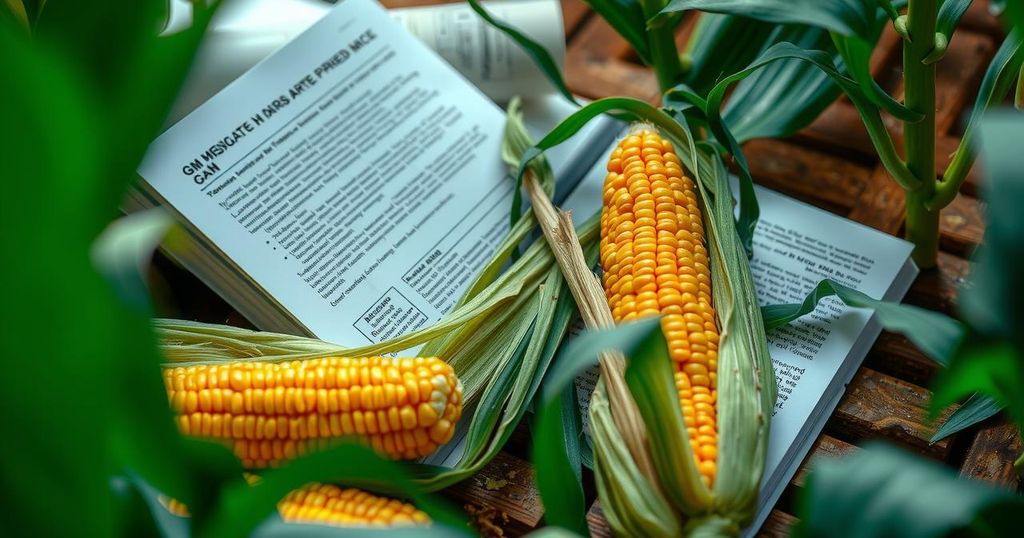Science
ÁLVAREZ - BUYLLA, AND TECHNOLOGY, ANDRÉS MANUEL LÓPEZ OBRADOR, ASIA, CONAHCYT, DEL T - MEC, DES, JORNA, LA JORNADA, MARIA ELENA ALVAREZ - BUYLLA, MARÍA ELENA ÁLVAREZ - BUYLLA, MARKET RESEARCH, MEDICINE, MEXICO, MEXICO CITY, NORTH AMERICA, NUTRITION, PHILIPPINES, RESEARCH, SCIENCE, SUSTAINABILITY, TIMOTHY A. WISE, U. S
Rajesh Choudhury
0 Comments
The GM Corn and Glyphosate Trade Dispute: Protecting Health and Heritage
In February 2023, Mexico’s President Andrés Manuel López Obrador enacted a decree banning GM corn in staple foods to protect health and environment, prompting a trade dispute with the U.S. under USMCA. Mexico has produced extensive scientific documentation to defend its measures against GM corn and glyphosate, emphasizing the health risks involved and the cultural significance of native corn. With the U.S. contesting these restrictions, the situation highlights a broader narrative concerning agricultural sovereignty and health versus trade politics.
In February 2023, Mexican President Andrés Manuel López Obrador took a bold step by instituting a decree to limit genetically modified (GM) corn in tortillas and other minimally processed corn products. His aim was to safeguard public health and environmental integrity, igniting a trade dispute with the U.S. government under the USMCA framework, as they argued the measures were unfair trade barriers. In the face of this challenge, Mexico assembled a body of scientific research to articulate the health risks posed by GM corn and glyphosate, painting a detailed picture of the potential dangers lurking in their staple food.
This scientific investigation led by the National Council of Humanities, Science and Technology (CONAHCYT) meticulously documented the adverse effects of GM corn on human health, environmental stability, and biodiversity, establishing a foundation of empirical evidence to support Mexico’s protective measures. Various reports emphasized the socio-cultural significance of native corn varieties and their intricate connection to Mexico’s identity, demonstrating that this dispute is not merely technical but deeply rooted in the nation’s heritage.
Upcoming analyses and interviews highlighted the urgency of this dialogue; renowned experts like Dr. María Elena Álvarez-Buylla weighed in, offering insights from her tenure at CONAHCYT and delving into the complexities of agricultural biotechnology. The U.S. has remained adamant in its stance, viewing Mexico’s restrictions as a departure from evidence-based policy, while Mexico counters with a robust set of documents and analysis, reinforcing the critical importance of local health and ecological concerns.
The unfolding narrative of this trade dispute serves as a compelling backdrop to a larger story about food sovereignty, scientific integrity, and the tension between globalization and local tradition. As the saga continues, the global community watches closely, for the outcome will not only affect trade dynamics but also set precedent for agricultural practices worldwide.
The backdrop of this ongoing trade dispute between Mexico and the United States revolves around Mexico’s decree to restrict GM corn in response to health and environmental safety concerns. The U.S. government argues that these restrictions constitute unfair trade practices, while Mexico defends its policies through a collection of scientific studies highlighting the negative aspects of GM corn and glyphosate usage. This case underscores the delicate tug-of-war between economic interests and public health, making it imperative for nations to defend their agricultural policies based on local needs and scientific evidence. This tension embodies a larger narrative about agricultural dependency, cultural identity, and the fight for sustainable practices in a world that increasingly teeters on the edge of ecologically detrimental food production methods. As the headlines reflect a clash of interests, they beckon questions about how nations prioritize the health of their citizens over market forces.
In conclusion, the trade dispute over GM corn between Mexico and the U.S. encapsulates a crucial clash between the imperatives of public health and international trade agreements. Mexico asserts its rights to protect its populace through scientific evidence, emphasizing the socio-cultural dimensions tied to native corn, while the U.S. maintains that such measures hinder fair trade practices. This conflict raises important questions not just for the countries involved but also for global agricultural standards and the future of food security in the face of scientific uncertainties. The resolutions derived from this dispute will likely reverberate throughout international trade, health regulations, and agricultural practices for years to come.
Original Source: usrtk.org




Post Comment